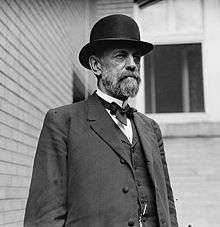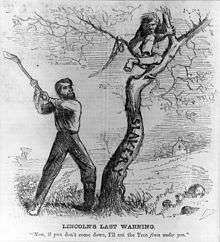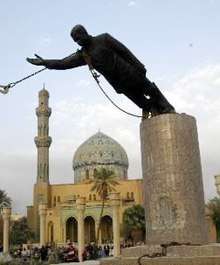
The early years of the century marked the progress of the race towards individual freedom and permanent victory over the tyranny of hereditary aristocracy, but the closing decades of the century have witnessed the surrender of all that was gained to the more heartless tyranny of accumulated wealth. ~ Richard F. Pettigrew

Certainly, plutocracy is less frightening than totalitarianism; resistance is less dangerous. ... But this is tyranny still, and it can make for harsh forms of domination. And if resistance is less heroic than in totalitarian states, it is hardly less important. ~ Michael Walzer

Tyranny, like hell, is not easily conquered; yet we have this consolation with us, that the harder the conflict, the more glorious the triumph. What we obtain too cheap, we esteem too lightly: it is dearness only that gives every thing its value. Heaven knows how to put a proper price upon its goods; and it would be strange indeed if so celestial an article as FREEDOM should not be highly rated. ~ Thomas Paine
.jpeg)
People ask about dictators, "Why?" But dictators themselves ask, "Why not?" ~ Garry Kasparov

The moment the idea is admitted into society, that property is not as sacred as the law of God, and that there is not a force of law and public justice to protect it, anarchy and tyranny commence. ~ John Adams

Down with the power of the despot, wherever his stronghold may be. ~ Lincoln and Liberty

Strangely, it is always America that is described as degenerate and 'fascist', while it is solely in Europe that actual dictatorships and totalitarian regimes spring up. ~ Jean-François Revel
Tyranny is a despotic or autocratic form of government, in which the exercise of power is concentrated in one individual or a ruling class without regard to the wishes of the governed.
A
- The moment the idea is admitted into society, that property is not as sacred as the law of God, and that there is not a force of law and public justice to protect it, anarchy and tyranny commence. If "Thou shall not covet," and "Thou shall not steal," are not commandments of Heaven, they must be made inviolable precepts in every society, before it can be civilized or made free.
- John Adams, Ch. 1 Marchamont Nedham : The Right Constitution of a Commonwealth Examined, A Defence of the Constitutions of Government (1787).
- The fundamental article of my political creed is, that despotism, or unlimited sovereignty, or absolute power, is the same in a majority of a popular assembly, an aristocratical council, an oligarchical junto, and a single emperor; equally arbitrary, cruel, bloody, and in every respect diabolical.
- John Adams, letter to Thomas Jefferson, November 13, 1815, in H. A. Washington The Writings of Thomas Jefferson (Washington: Taylor & Maury, 1853-4) vol. 6, p. 500.
- Ὁ λόγος δηλοῖ ὅτι οἷα ἡ πρόθεσίς ἐστιν ἀδικεῖν, παρ᾿ αὐτοῖς οὐδὲ δικαία ἀπολογία ἰσχύει.
- Aesop The Wolf and the Lamb from Aesop's Fables (c. 620-560 BC).
- The tyrant will always find a pretext for his tyranny.
- as translated by George Fyler Townsend (1887)
- Any excuse will serve a tyrant.
- as translated by Joseph Jacobs (1894)
- The tyrant will always find a pretext for his tyranny.
B
- The tyrant now
Trusts not to men: nightly within his chamber
The watch-dog guards his couch, the only friend
He now dare trust.- Joanna Baillie, Ethwald (1802), Part II, Act V, scene 3.
- Οὐδὲν ὑφίσταται τὴν βίαν τοῦ πλούτου· Πάντα ὑποκύπτει τῇ τυραννίδι, πάντα ὑποπτήσσει τὴν δυναστείαν.
- Nothing withstands the influence of wealth. Everything submits to its tyranny, everything cowers at its dominion.
- Basil of Caesarea, To the Rich (c. 368), in Saint Basil on Social Justice, edited and translated by C. P. Schroeder (2009), p. 51
- Dictatorships foster oppression, dictatorships foster servitude, dictatorships foster cruelty; more abominable is the fact that they foster idiocy.
- Jorge Luis Borges, Statement to the Argentine Society of Letters (c.1946).
- Kings will be tyrants from policy when subjects are rebels from principle.
- Edmund Burke Reflections on the Revolution in France (London: J. Dodsley, 1790) p. 116.
- You don't get everything you want. A dictatorship would be a lot easier.
- George W. Bush, responding to the difficulties of governing Texas, "The Taming of Texas", Governing Magazine (July 1998); also cited in Is our Children Learning?: The Case Against George W. Bush (2000) by Paul Begala.
- If this were a dictatorship, it would be a heck of a lot easier, just so long as I'm the dictator.
- George Bush, (December 18, 2000)
- A dictatorship would be a heck of a lot easier, there's no question about it.
- George W. Bush, Washington, D. C., (26 July 2001); as quoted in the Seattle Seattle Post-Intelligencer (27 July 2001).
C
- Even the tyrant never rules by force alone; but mostly by fairy tales. And so it is with the modern tyrant, the great employer. The sight of a millionaire is seldom, in the ordinary sense, an enchanting sight: nevertheless, he is in his way an enchanter. As they say in the gushing articles about him in the magazines, he is a fascinating personality. So is a snake. At least he is fascinating to rabbits; and so is the millionaire to the rabbit-witted sort of people that ladies and gentlemen have allowed themselves to become.
- G. K. Chesterton, Utopia of Usurers (1917), p. 19
- Tyranny over a man is not tyranny: it is rebellion, for man is royal.
- G.K. Chesterton, "Charles Dickens," 1906. http://gutenberg.net.au/ebooks09/0900431.txt.
- Dictators ride to and fro upon tigers which they dare not dismount. And the tigers are getting hungry.
- Sir Winston Churchill, letter dated November 11, 1937, Step by Step: 1936-1939 (London: Odhams Press, 1949) p. 174.
D
- Nature has left this tincture in the blood,
That all men wou'd be tyrants if they cou'd.- Daniel Defoe The History of the Kentish Petition, Addenda, line 11; cited from The Shortest Way with Dissenters, and Other Pamphlets (Oxford: Basil Blackwell, 1974) p. 100.
- Of all the tyrannies on human kind
The worst is that which persecutes the mind.- John Dryden, The Hind and the Panther (1687), Pt. I line 239-240
E
- Under dictatorship, the people in prison are always superior to the people who put them there.
- Evan Esar, 20,000 Quips and Quotes.
G
- The end of the tyranny of bureaucracy, which was the self-destructive vice with which socialism was infected, marked the installation of another and different tyranny, namely the tyranny of money.
- Michel Glautier, The Social Conscience (2007), p. 207
- Los pasivos alzan el clamor llamándose apóstoles de la evolución y condenando todo lo que tiene algo de rebeldía; apelan al miedo, hacen llamamientos patéticos al patriotismo; acuden a la ignorancia y llegan a aconsejar al pueblo que se deje matar y ultrajar en los próximos comicios y vuelvan una y otra vez a ejercer pacíficamente el derecho de sufragio, a que una y otra vez lo burlen y lo asesinen los tiranos. ... Para evolucionar es preciso ser libre y no podemos tener libertad si no somos rebeldes, porque nunca tirano alguno ha respetado a los pueblos pasivos; jamás un rebaño de carneros se ha impuesto con la majestad de su número inofensivo, al lobo que bonitamente los devora sin cuidarse de otro derecho que el de sus dientes. Hay que armarse, pero no de un voto inútil, que siempre valdrá tanto como el tirano quiere, sino de armas efectivas y menos candorosas cuyo uso nos traiga la evolución ascendente y no la regresiva que preconizan los luchadores pacifistas. ¡Pasividad, nunca! Rebeldía, ahora y siempre.
- The quiescent ones raise an outcry calling themselves apostles of evolution, condemning everything that has any hint of rebelliousness; they appeal to fear and make pathetic patriotic calls; they resort to ignorance and go so far as to advise the people to let themselves be murdered and insulted during the next round of elections, to again and again peacefully exercise their right to vote, so that the tyrants mock them and assassinate them over and over. ... To evolve we must be free, and we cannot have freedom if we are not rebels, because no tyrant whatsoever has respected passive people. Never has a flock of sheep instilled the majesty of its harmless number upon the wolf that craftily devours them, caring for no right other than that of his teeth. We must arm ourselves, not using the useless vote that will always be worth only as much as a tyrant wants, but rather with effective and less naive weapons whose utilization will bring us ascendant evolution instead of the regressive one praised by pacifist activists. Passivity, never! Rebellion—now and always.
- Práxedis Guerrero, Passivity and Rebellion (29 de Agosto 1909), Punto Rojo, N° 3, El Paso, Texas, translated by Javier Sethness-Castro.
- [T]yranny is a deviant form of monarchy.
- Allen C. Guelzo, "Bullwhip Feudalism" (30 July 2018), Claremont Review of Books, California: Claremont Institute
H
- Dictatorship—A system of government where everything that is not forbidden is obligatory.
- Mirza Mohammad Hussain, Islam Versus Socialism, Lahore, Pakistan: Sh. Muhammad Ashraf (1970) p. 167. Originally published in 1947.
- Fear not the tyrant; fear the tyrant's wake.
- Tom Heehler The Well-Spoken Thesaurus (Sourcebooks, 2011).
- Down with the power of the despot, wherever his stronghold may be.
- Jesse Hutchinson, "The Liberty Ball"
J
- I have sworn upon the altar of God, eternal hostility against every form of tyranny over the mind of man.
- Thomas Jefferson, letter to Benjamin Rush (September 23, 1800); in Andrew A. Lipscomb, ed., The Writings of Thomas Jefferson (1903), vol. 10, p. 175. Carved at the base of the dome, interior of the Jefferson Memorial, Washington, D.C.
- Enlighten the people generally, and tyranny and oppressions of body and mind will vanish like evil spirits at the dawn of day.
- Thomas Jefferson, letter to Du Pont de Nemours (April 24, 1816).
- Britannia fertilis provincia tyrannorum.
- Britain, a province fertile in tyrants.
- St. Jerome, Epistola 133.9; translation from Arthur Wade-Evans The Emergence of England and Wales (Cambridge: W. Heffer, 1959) p. 119.
- Est ergo tyranni et principis hæc differentia sola, quod hic legi obtemperat, et ejus arbitrio populum regit, cujus se credit ministrum.
- Between a tyrant and a prince there is this single or chief difference, that the latter obeys the law and rules the people by its dictates, accounting himself as but their servant.
- John of Salisbury Policraticus Bk. 4, ch. 1.; John Dickinson (trans.) The Statesman's Book of John of Salisbury .
- I consider that in no government power can be abused long. Mankind will not bear it. If a sovereign oppresses his people to a great degree, they will rise and cut off his head. There is a remedy in human nature against tyranny, that will keep us safe under every form of government.
- Samuel Johnson in conversation with Sir Adam Fergusson, March 31, 1772; James Boswell Life of Johnson (Oxford: OUP, 1989) p. 477.
K

I have to say as somebody who was born and raised in a Communist country, I cannot criticize any action that led to the destruction of dictatorship. ~ Garry Kasparov
- First of all, I have to say as somebody who was born and raised in a Communist country, I cannot criticize any action that led to the destruction of dictatorship.
- Garry Kasparov, interview with Bill Kristol (April 2016)
- People ask about dictators, "Why?" But dictators themselves ask, "Why not?"
- Garry Kasparov, as quoted in "Is Putin Popular?" (2018), by Jay Nordlinger, National Review
- Tyranny cannot defeat the power of ideas.
- Helen Keller, as quoted in the Fighting the Fires of Hate: America and the Nazi Book Burnings exhibit at the United States Holocaust Memorial Museum (13 April 2003).
- Our society gives autonomy to the family, education, the professions, and of course the economy. Different values and procedures govern these spheres, such that those who gain power in one have not for that reason acquired the goods to gain power in any other. Social systems that violate this design are easily named. Monarchy premises political power on family lineage—royal birth. Theocracy does so on status within a religious hierarchy. Dictatorship rests on control of the military. Plutocracy premises political power on wealth. Communism, meanwhile, premises economic power on political power. ... Converting success in one sphere into success in another turns a pluralistic society of diverse freedoms and equalities into a regime of domination. This is why Walzer defines tyranny as "the systematic coordination of social goods and spheres of life that ought to be separate."
- Timothy K. Kuhner, Capitalism v. Democracy: Money in Politics and the Free Market Constitution (Stanford Law Books: 2014), p. 261. The cited definition is from Michael Walzer, Spheres Of Justice: A Defense Of Pluralism And Equality (Basic Books: 1984), p. 316.
L
- Political prisoners, detention without trial and unlimited imprisonment define tyranny.
- Gideon Levy, In a Democracy, Palestinian Lawmaker Khalida Jarrar Would Be Free (June 21, 2018), Haaretz.
- In the U.S. corporatocracy, as in most modern tyrannies, there are elections, but the reality is that giant corporations and the wealthy elite rule in a way to satisfy their own self-interest. In elections in a corporatocracy, as is the case in elections in all tyrannies, it’s in the interest of the ruling class to maintain the appearance that the people have a say, so more than one candidate is offered up. In the U.S. corporatocracy, it’s in the interest of corporations and the wealthy elite that the winning candidate is beholden to them, so they financially support both Democrats and Republicans. It’s in the interest of corporations and the wealthy elite that there are only two viable parties—this cuts down on bribery costs. And it’s in the interest of these two parties that they are the only parties with a chance of winning.
- Bruce E. Levine, The Myth of U.S. Democracy and the Reality of U.S. Corporatocracy, Huffington Post (25 May 2011)
- Of all tyrannies, a tyranny sincerely exercised for the good of its victims may be the most oppressive. It would be better to live under robber barons than under omnipotent moral busybodies. The robber baron's cruelty may sometimes sleep, his cupidity may at some point be satiated; but those who torment us for our own good will torment us without end for they do so with the approval of their own conscience. They may be more likely to go to Heaven yet at the same time likelier to make a Hell of earth. This very kindness stings with intolerable insult. To be "cured" against one's will and cured of states which we may not regard as disease is to be put on a level of those who have not yet reached the age of reason or those who never will; to be classed with infants, imbeciles, and domestic animals.
- C. S. Lewis, in "God in the Dock" (1948).
M
- As soon as the prince sets himself up above law, he loses the king in the tyrant. He does, to all intents and purposes, unking himself by acting out of and beyond that sphere which the constitution allows him to move in; and in such cases he has no more right to be obeyed than any inferior officer who acts beyond his commission.
- Jonathan Mayhew, A Discourse Concerning Unlimited Submission and Non-Resistance to the Higher Powers (1750); cited from John Wingate Thornton (ed.) The Pulpit of the American Revolution (New York: Sheldon, 1860) pp. 94-5.
- Even despotism does not produce its worst effects, so long as Individuality exists under it; and whatever crushes individuality, is despotism, by whatever name it may be called, and whether it professes to be enforcing the will of God or the injunctions of men.
- John Stuart Mill, On Liberty (Boston: Ticknor & Fields, [1859] 1863) pp. 121-2.
- There is nothing more puerile than the mind of a tyrant.
- Michael Moorcock, The Dragon in the Sword (1986), Book 3, Chapter 1
N
- Where there have been powerful governments, societies, religions, public opinions, in short wherever there has been tyranny, there the solitary philosopher has been hated; for philosophy offers an asylum to a man into which no tyranny can force it way, the inward cave, the labyrinth of the heart.
- Friedrich Nietzsche, Untimely Meditations, trans. Hollingdale, “Schopenhauer as educator,” § 3.3, p. 139
- We are now slaves of big companies, all of us. The Hitlers are replaced by men of power and wealth. I begin to see the need of socialism and listen to Herbert Marcuse. Before, I saw the tyranny of communism equal to the tyranny of money.
- Anaïs Nin, Spring 1974, The Diary of Anaïs Nin, 1966–1974, p. 314
O
- Whenever kingship approaches tyranny it is near its end, for by this it becomes ripe for division, change of dynasty, or total destruction, especially in a temperate climate … where men are habitually, morally and naturally free.
- Nicole Oresme, ̆De Moneta (c. 1360), Charles Johnson's translation, The De Moneta of Nicholas Oresme, and English Mint Documents (London, 1956), Ch. 25: "That a Tyrant cannot be lasting."
- Do you realise, for instance, that no one in England under 26 now has a vote and that so far as one can see the great mass of people of that age don’t give a damn for this? Secondly there is the fact that the intellectuals are more totalitarian in outlook than the common people. On the whole the English intelligentsia have opposed Hitler, but only at the price of accepting Stalin. Most of them are perfectly ready for dictatorial methods, secret police, systematic falsification of history, etc. so long as they feel that it is on ‘our’ side. Indeed the statement that we haven’t a Fascist movement in England largely means that the young, at this moment, look for their fuhrer elsewhere. One can’t be sure that that won’t change, nor can one be sure that the common people won’t think ten years hence as the intellectuals do now. I hope they won’t, I even trust they won’t, but if so it will be at the cost of a struggle. If one simply proclaims that all is for the best and doesn’t point to the sinister symptoms, one is merely helping to bring totalitarianism nearer.
- George Orwell, Letter to H.J. Willmett, 18 May 1944, in George Orwell: As I Please, 1943-1946, vol. 3, pp. 149-150
P
- Tyrants in the course of time must eventually be overthrown because of the continual opposition of the oppressed. It is an unchanging Law, a constant rule, the penalty is certain, albeit that it is very slow coming to fruition.
- Francesco Mario Pagano, Saggi Politici (1783), cited from Carlo Pisacane's La Rivoluzione, Troubador, 2010, p. 160.
- All hereditary government is in its nature tyranny. An heritable crown, or an heritable throne, or by what other fanciful name such things may be called, have no other significant explanation than that mankind are heritable property. To inherit a government, is to inherit the people, as if they were flocks and herds.
- Thomas Paine The Rights of Man (1791), pt. 2; cited from The Political Writings of Thomas Paine (Charlestown: George Davidson, 1824) vol. 2, p. 166.
- THESE are the times that try men's souls. The summer soldier and the sunshine patriot will, in this crisis, shrink from the service of their country; but he that stands it now, deserves the love and thanks of man and woman. Tyranny, like hell, is not easily conquered; yet we have this consolation with us, that the harder the conflict, the more glorious the triumph. What we obtain too cheap, we esteem too lightly: it is dearness only that gives every thing its value. Heaven knows how to put a proper price upon its goods; and it would be strange indeed if so celestial an article as FREEDOM should not be highly rated.
- Thomas Paine, "The Crisis" (written 19 December 1776, published 23 December 1776), no. 1, in Moncure D. Conway, ed., The Writings of Thomas Paine (1894), vol. 1, p. 170.
- La tyrannie est toujours mieux organisée que la liberté.
- Tyranny is always better organized than freedom.
- Charles Péguy Œuvres en prose: 1909-1914 (Paris: Gallimard, 1959) p. 1018; Ann and Julian Green (trans.) Basic Verities, Prose and Poetry (New York: Pantheon, 1943) p. 153.
- The early years of the century marked the progress of the race towards individual freedom and permanent victory over the tyranny of hereditary aristocracy, but the closing decades of the century have witnessed the surrender of all that was gained to the more heartless tyranny of accumulated wealth.
- Richard F. Pettigrew, November 22, 1900 Triumphant Plutocracy: The Story of American Public Life from 1870 to 1920 (1921), p. 425
- Unlimited power is apt to corrupt the minds of those who possess it; and this I know, my Lords, that where law ends tyranny begins!
- William Pitt, 1st Earl of Chatham, speaking in the House of Lords, 9 January 1770; cited from John Almon Anecdotes of the Life of the Right Hon. William Pitt, Earl of Chatham (London: J. S. Jordan, 1792) vol. 2, p. 21.
- Tyranny is not a matter of minor theft and violence, but of wholesale plunder, sacred and profane, private or public. If you are caught committing such crimes in detail you are punished and disgraced; sacrilege, kidnapping, burglary, fraud, theft are the names we give to such petty forms of wrongdoing. But when a man succeeds in robbing the whole body of citizens and reducing them to slavery, they forget these ugly names and call him happy and fortunate, as do all others who hear of his unmitigated wrongdoing.
- Plato, The Republic 344a-c, H.D.P. Lee translation, Penguin Books, 1955, p.73.
- Paix entre nous, guerre aux tyrans
- Peace among us, war to the tyrants!
- Eugène Edine Pottier, The Internationale (1864)
R
- Strangely, it is always America that is described as degenerate and 'fascist', while it is solely in Europe that actual dictatorships and totalitarian regimes spring up.
- Jean-François Revel, "Europe's Anti-American Obsession" (2003), The View From Abroad, The American Enterprise.
- The right to punish the tyrant and the right to dethrone him are the same thing; both include the same forms. The tyrant’s trial is the insurrection; the verdict, the collapse of his power; the sentence, whatever the liberty of the people requires.
- Maximilien Robespierre,"On the Trial of the King" (3 December 1792)
- For two decades the supporters of Bolshevism have been hammering it into the masses that dictatorship is a vital necessity for the defense of the so-called proletarian interests against the assaults of counter-revolution and for paving the way for Socialism. They have not advanced the cause of Socialism by this propaganda, but have merely smoothed the way for Fascism in Italy, Germany and Austria by causing millions of people to forget that dictatorship, the most extreme form of tyranny, can never lead to social liberation. In Russia, the so-called dictatorship of the proletariat has not led to Socialism, but to the domination of a new bureaucracy over the proletariat and the whole people. … What the Russian autocrats and their supporters fear most is that the success of libertarian Socialism in Spain might prove to their blind followers that the much vaunted "necessity of dictatorship" is nothing but one vast fraud which in Russia has led to the despotism of Stalin and is to serve today in Spain to help the counter-revolution to a victory over the revolution of the workers and the peasants.
- Rudolf Rocker The Tragedy of Spain (1937), p. 35.
S
- O, it is excellent
To have a giant's strength; but it is tyrannous
To use it like a giant.- Isabella, in William Shakespeare Measure for Measure Act II, sc. ii.
- For how can tyrants safely govern home,
Unless abroad they purchase great alliance?- William Shakespeare, Henry VI, Part III (c. 1591), Act III, scene 3, line 69.
- This tyrant, whose sole name blisters our tongues,
Was once thought honest.- William Shakespeare, Macbeth (1605), Act IV, scene 3, line 12.
- Bleed, bleed, poor country!
Great Tyranny! lay thou thy basis sure,
For goodness dares not check thee!- William Shakespeare, Macbeth (1605), Act IV, scene 3, line 31.
- O nation miserable,
With an untitled tyrant bloody-scepter'd
When shalt thou see thy wholesome days again?- William Shakespeare, Macbeth (1605), Act IV, scene 3, line 103.
- 'Tis time to fear, when tyrants seem to kiss.
- Pericles, in William Shakespeare, Pericles, Prince of Tyre (c. 1607-08), Act I, scene 2, line 79.
- I knew him tyrannous, and tyrants' fears
Decrease not, but grow faster than the years.- William Shakespeare, Pericles, Prince of Tyre (c. 1607-08), Act I, scene 2, line 84.
- For what is he they follow? truly, gentlemen,
A bloody tyrant, and a homicide:
One rais'd in blood, and one in blood establish'd;
One that made means to come by what he hath,
And slaughter'd those that were the means to help him;
A base foul stone, made precious by the foil
Of England's chair, where he is falsely set;
One that hath ever been God's enemy.- William Shakespeare, Richard III (c. 1591), Act V, scene 3, line 245.
- The man dies in all who keep silent in the face of tyranny.
- Wole Soyinka, The Man Died (New York: Harper & Row, 1972) p. 13.
- Tyranny always has its rationale.
- Michael Swanwick, Stations of the Tide (1991), Chapter 2
- Rebellion to tyrants is obedience to God.
- From an anonymous tribute to John Bradshaw, current in America by 1773; cited from Charles Symmons The Life of John Milton (London: Whittaker, [1806] 1822) p. 229.
- Sometimes wrongly said to be inscribed on Bradshaw's gravestone.
T
- When government is unjustly exercised by one man who seeks personal profit from his position instead of the good of the community subject to him, such a ruler is called a tyrant.
- Thomas Aquinas, On Princely Government
- When what is ordered by an authority is opposed to the object for which that authority was constituted, ... one is obliged to disobey it, as did the holy martyrs who suffered death rather than obey the impious commands of tyrants.
- Thomas Aquinas, Commentary on the Sentences of Peter Lombard
- Despots themselves don't deny that freedom is a wonderful thing, they only want to limit it to themselves; they argue that everyone else is unworthy of it.
- Alexis de Tocqueville L'Ancien régime et la révolution (Paris: Michel L évy Frères, [1856] 1859) p. 21; François Furet and Françoise Mélonio (eds.), Alan S. Kahan (trans.) The Old Regime and the Revolution vol. 1, p. 88.
- Original text:
Les despotes eux-mêmes ne nient pas que la liberté ne soit excellente; seulement ils ne la veulent que pour eux-mêmes, et ils soutiennent que tous les autres en sont tout à fait indignes.
- One must distinguish well arbitrariness from tyranny. Tyranny can be exercised by means of law itself, and then is not arbitrariness; arbitrariness can be exercised in the interest of the governed, and then it is not tyrannical.
- Alexis de Tocqueville, Democracy in America, H. Mansfield, trans. (Chicago: 2000), p. 242
U
- Remember, I have not appointed you as commanders and tyrants over the people. I have sent you as leaders instead, so that the people may follow your example. Give the Muslims their rights and do not beat them lest they become abused. Do not praise them unduly, lest they fall into the error of conceit. Do not keep your doors shut in their faces, lest the more powerful of them eat up the weaker ones. And do not behave as if you were superior to them, for that is tyranny over them.
- Umar as quoted in Omar the Great : The Second Caliph Of Islam (1962) by Muhammad Shibli Numani, Vol. 2, p. 33
W
- Plutocracy is an established fact not only when rich men and women rule the state but also when they rule the company and the factory. ... Still, the tyranny of money is less frightening than the kinds of tyranny that have their origins on the other side of the money/politics divide. Certainly, plutocracy is less frightening than totalitarianism; resistance is less dangerous. The chief reason for the difference is that money can buy power and influence, as it can buy office, education, honor and so on, without radically coordinating the various distributive spheres and without eliminating alternative processes and agents. ... Corrupt distributions coexist with legitimate ones, like prostitution alongside married love. But this is tyranny still, and it can make for harsh forms of domination. And if resistance is less heroic than in totalitarian states, it is hardly less important.
Resistance will require at some point a concentration of political power that matches the concentration of plutocratic power—hence a movement or party that seize or, at least, uses the state.- Michael Walzer, Spheres Of Justice: A Defense Of Pluralism And Equality (1984), p. 317
- In addition to his bio-physical heresies, Dr. Reich vastly offended many people by his sociological theory, which holds that fascism is just an exaggerated form of the basic structure of sex-negative societies and has existed under other names in every civilization based on sexual repression. In this theory, the character and muscular armor of the average citizen — a submissive and frightened attitude anchored in body reflexes — causes the average person to want a strong authority figure above them. Tyranny, in this model, is not created by tyrants alone but by neurotic masses who want tyrants.
- Robert Anton Wilson, in Everything Is Under Control : Conspiracies, Cults, and Cover-Ups (1998), p. 361; some of Wilson's account of the suppression of Reich's ideas and work are technically exaggerative: though many of Reich's books mentioning his concepts of orgone energy and the "orgone accumulators" of his laboratory were destroyed the destruction of his equipment and books was not actually total.
- The English monster, the center of mischief, a shame to the British Chronicle, a pattern for tyranny, murder and hypocrisie, whose bloody Tyranny will quite drown the name of Nero, Caligula, Domitian, having at last attained the height of his Ambition, for Five years space he wallowed in the blood of many Gallant and Heroick Persons.
- William Winstanley, Loyal Martyrology as quoted in Conflicts with Oblivion (1935) by Wilbur Cortez Abbott, p. 159.
Hoyt's New Cyclopedia Of Practical Quotations

The despotism of vice—the weakness and the wickedness of luxury—the negligence—the apathy—the evils of sensual sloth—produce ten thousand tyrants. ~ Lord Byron
- Quotes reported in Hoyt's New Cyclopedia Of Practical Quotations (1922), p. 825.
- A king ruleth as he ought, a tyrant as he lists, a king to the profit of all, a tyrant only to please a few.
- Th' oppressive, sturdy, man-destroying villains,
Who ravag'd kingdoms, and laid empires waste,
And in a cruel wantonness of power,
Thinn'd states of half their people, and gave up
To want the rest.- Robert Blair, The Grave, line 9.
- Tyranny
Absolves all faith; and who invades our rights,
Howe'er his own commence, can never be
But an usurper.- Henry Brooke, Gustavus Vasa, Act IV, scene 1.
- Think'st thou there is no tyranny but that
Of blood and chains? The despotism of vice—
The weakness and the wickedness of luxury—
The negligence—the apathy—the evils
Of sensual sloth—produce ten thousand tyrants,
Whose delegated cruelty surpasses
The worst acts of one energetic master,
However harsh and hard in his own bearing.- Lord Byron, Sardanapalus, Act I, scene 2.
- Tyranny
Is far the worst of treasons. Dost thou deem
None rebels except subjects? The prince who
Neglects or violates his trust is more
A brigand than the robber-chief.- Lord Byron, The Two Foscari, Act II, scene 1.
- N'est-on jamais tyran qu'avec un diadème?
- Is there no tyrant but the crowned one?
- Joseph Chénier, Caius Gracchus.
- Tyran, descends du trône et fais place à ton maître.
- Tyrant, step from the throne, and give place to thy master.
- Pierre Corneille, Heraclius, I, 2.
- Tremblez, tyrans, vous êtes immortels.
- Tremble, ye tyrants, for ye can not die.
- Jacques Delille, L'Immortalité de l'Âme.
- There is nothing more hostile to a city than a tyrant, under whom in the first and chiefest place, there are not laws in common, but one man, keeping the law himself to himself, has the sway, and this is no longer equal.
- Euripides, Suppliants, 429. Oxford translation (revised by Buckley).
- Il n'appartient, qu'aux tyrans d'être toujours en crainte.
- None but tyrants have any business to be afraid.
- Hardouin de Péréfixe. Attributed to Henry IV.
- 'Twixt kings and tyrants there's this difference known:
Kings seek their subjects' good, tyrants their owne.- Robert Herrick, Kings and Tyrants.
- Men are still men. The despot's wickedness
Comes of ill teaching, and of power's excess,—
Comes of the purple he from childhood wears,
Slaves would be tyrants if the chance were theirs.- Victor Hugo, The Vanished City.
- Resistance to tyrants is obedience to God.
- Thomas Jefferson, found among his papers after his death.
- Quid violentius aure tyranni?
- What is more cruel than a tyrant's ear?
- Juvenal, Satires, IV. 86.
- Les habiles tyrans ne sont jamais punis.
- Clever tyrants are never punished.
- Voltaire, Mérope, V. 5.
- A company of tyrants is inaccessible to all seductions.
- Voltaire, A Philosophical Dictionary, Tyranny.
- The sovereign is called a tyrant who knows no laws but his caprice.
- Voltaire, A Philosophical Dictionary, Tyranny.
See also
External links
This article is issued from
Wikiquote.
The text is licensed under Creative
Commons - Attribution - Sharealike.
Additional terms may apply for the media files.